Civil Disobedience and Natural Law Theory: The Montgomery Bus Boycott
VerifiedAdded on 2023/04/11
|7
|353
|371
Report
AI Summary
This report examines the intersection of civil disobedience and natural law theory, using the Montgomery bus boycott as a central case study. It begins by outlining the historical context of the boycott, which was a protest against racial segregation in the public transport system. The report argues that the boycott exemplifies civil disobedience because it challenged unjust laws and policies that discriminated against African Americans. It then delves into the natural law theory, explaining how it supports the idea that all individuals are inherently equal, and that unjust laws should not be obeyed. The report uses the works of various scholars to analyze the boycott in light of natural law, concluding that the boycott was a justifiable act of civil disobedience because it fought for equality and human rights. The report also highlights the significance of civil disobedience as a tool for achieving social and political change, advocating for equality, and promoting inclusive decision-making processes.
1 out of 7
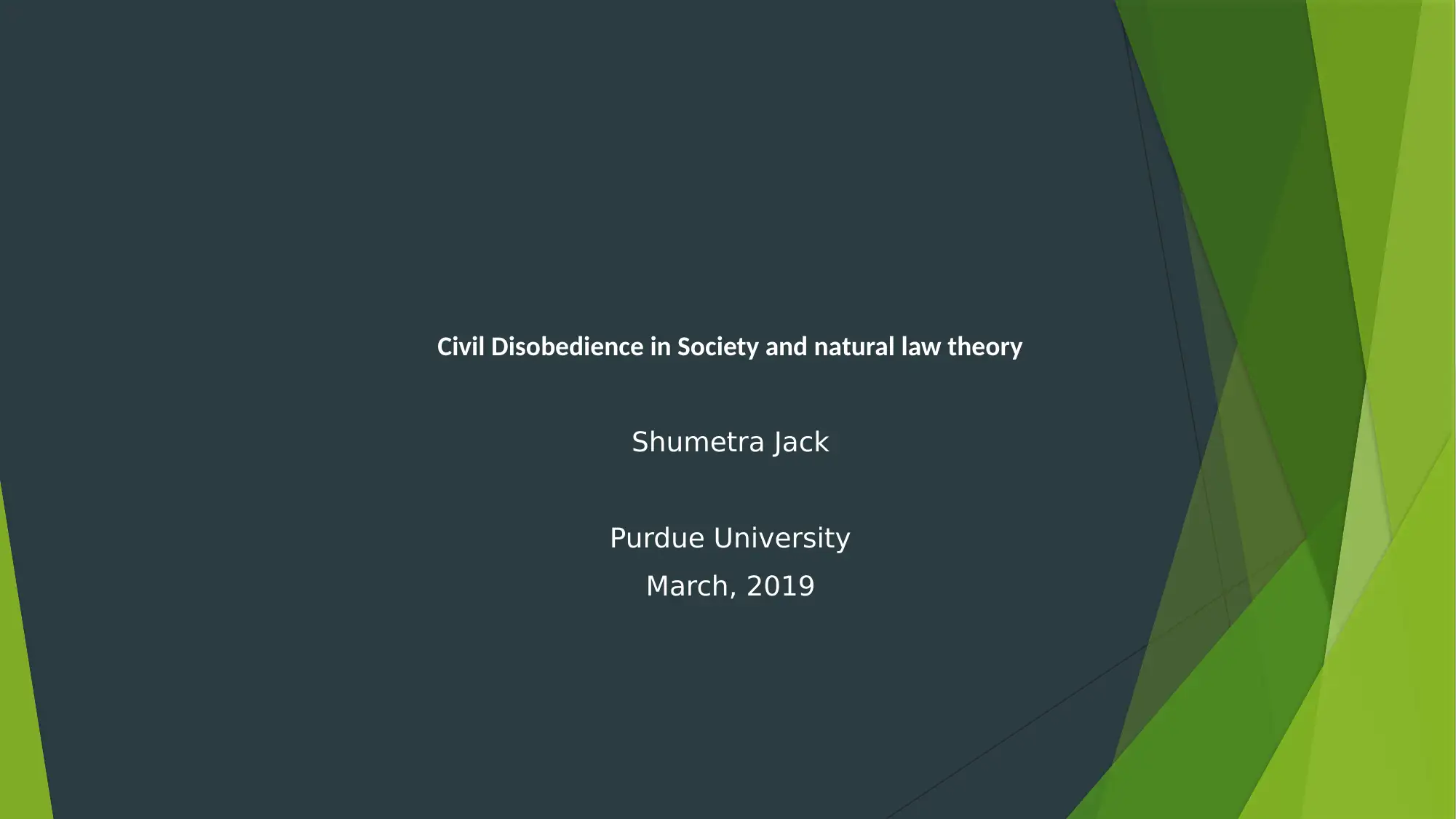
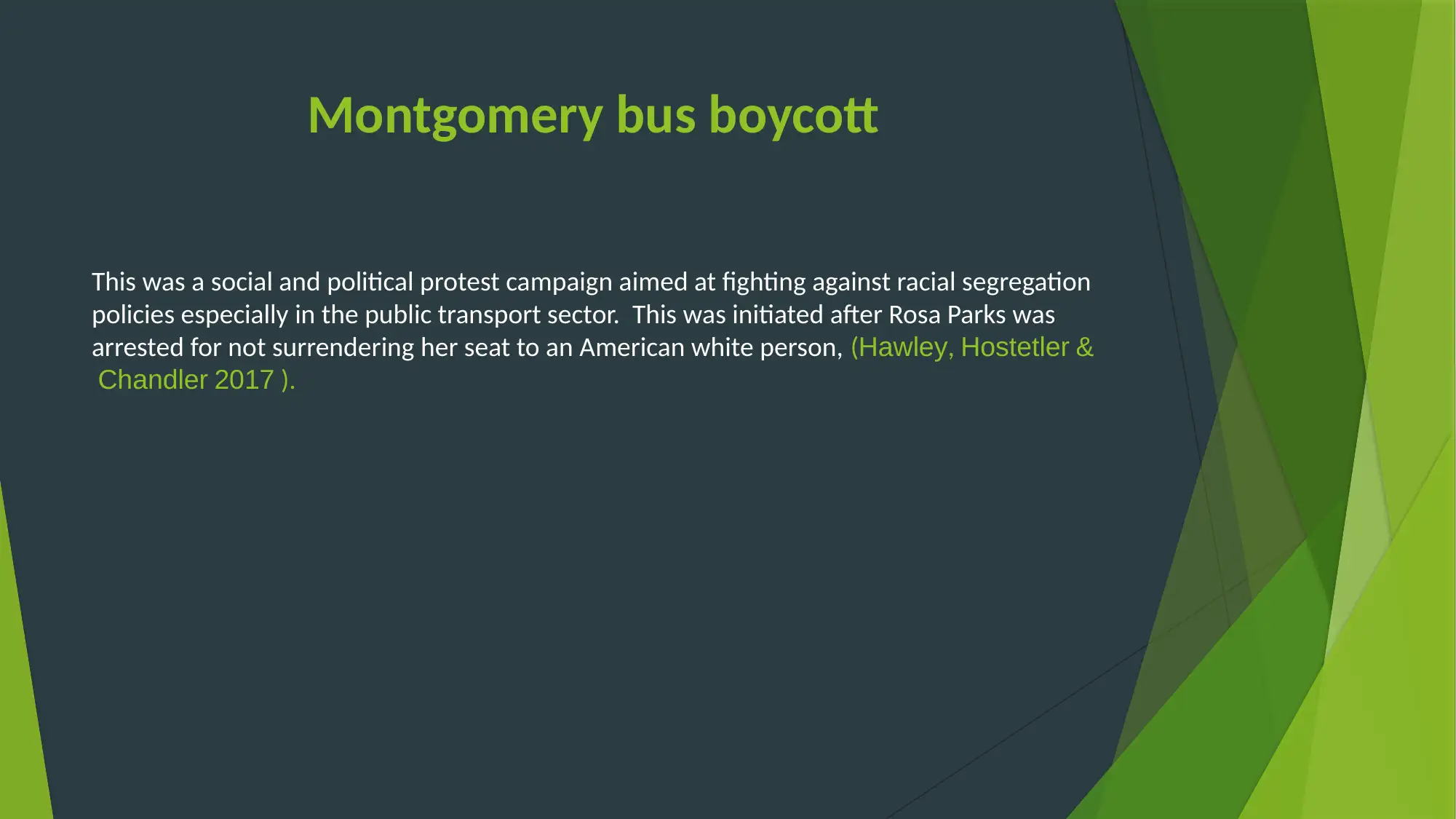
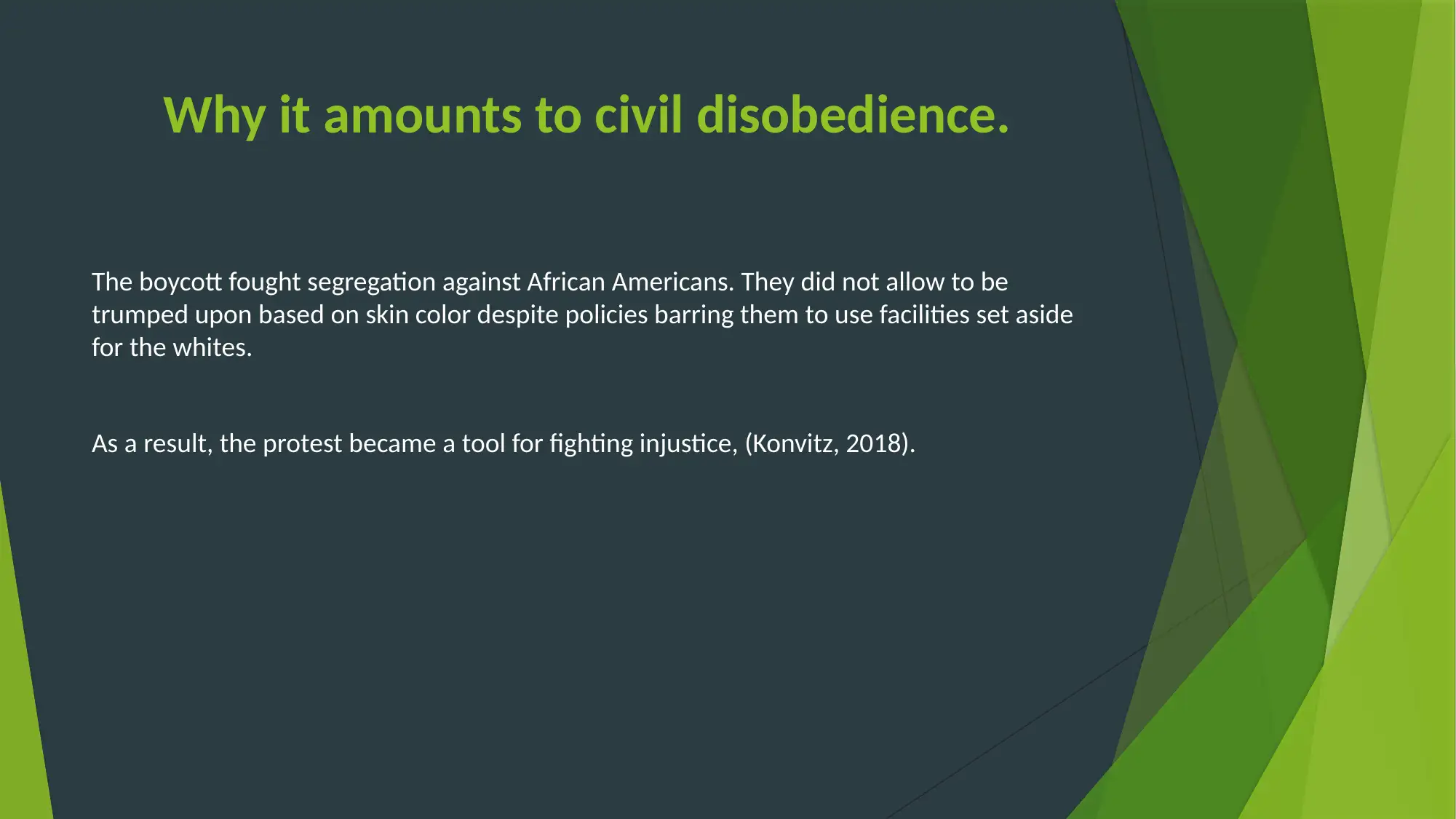

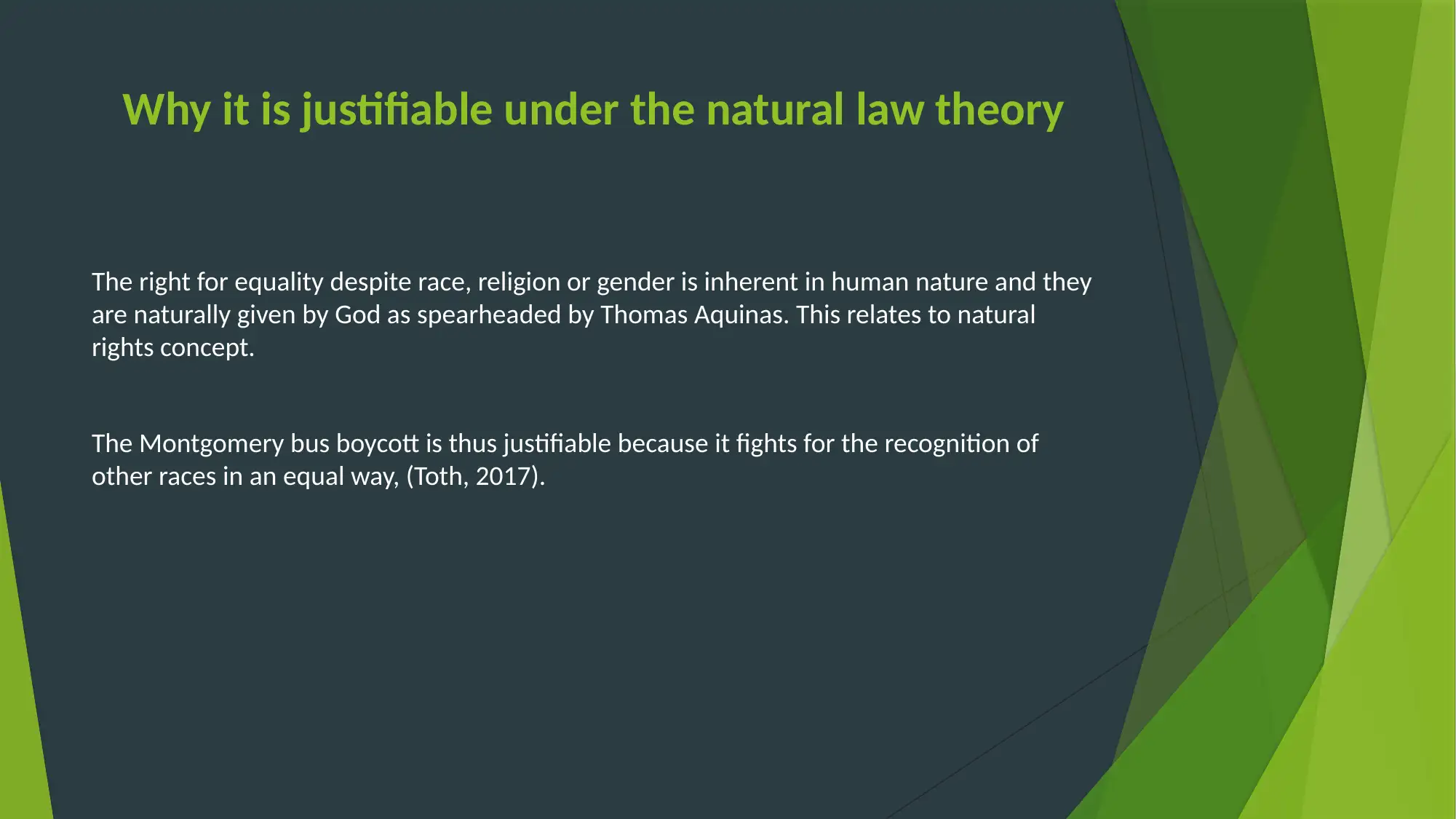
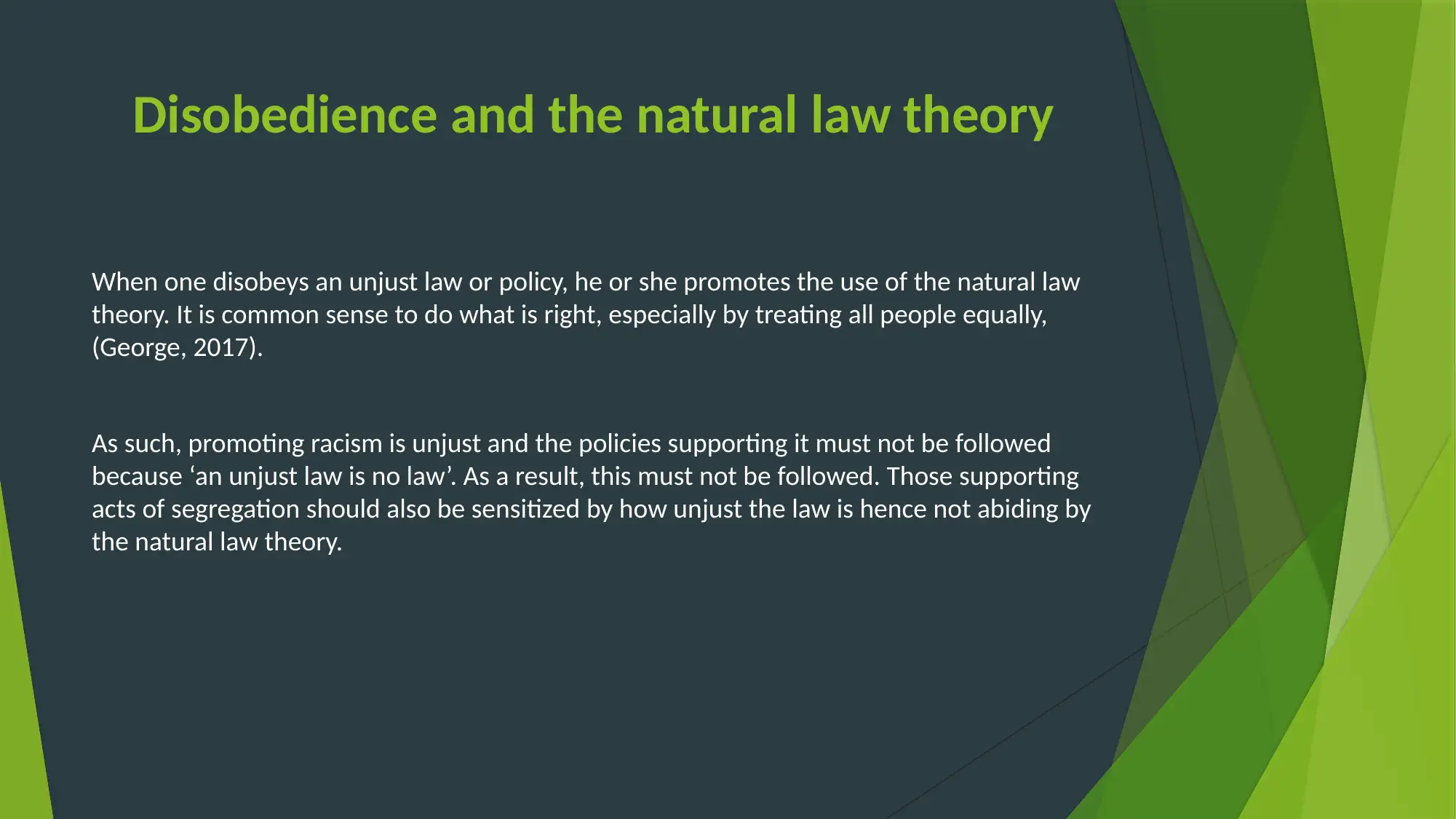
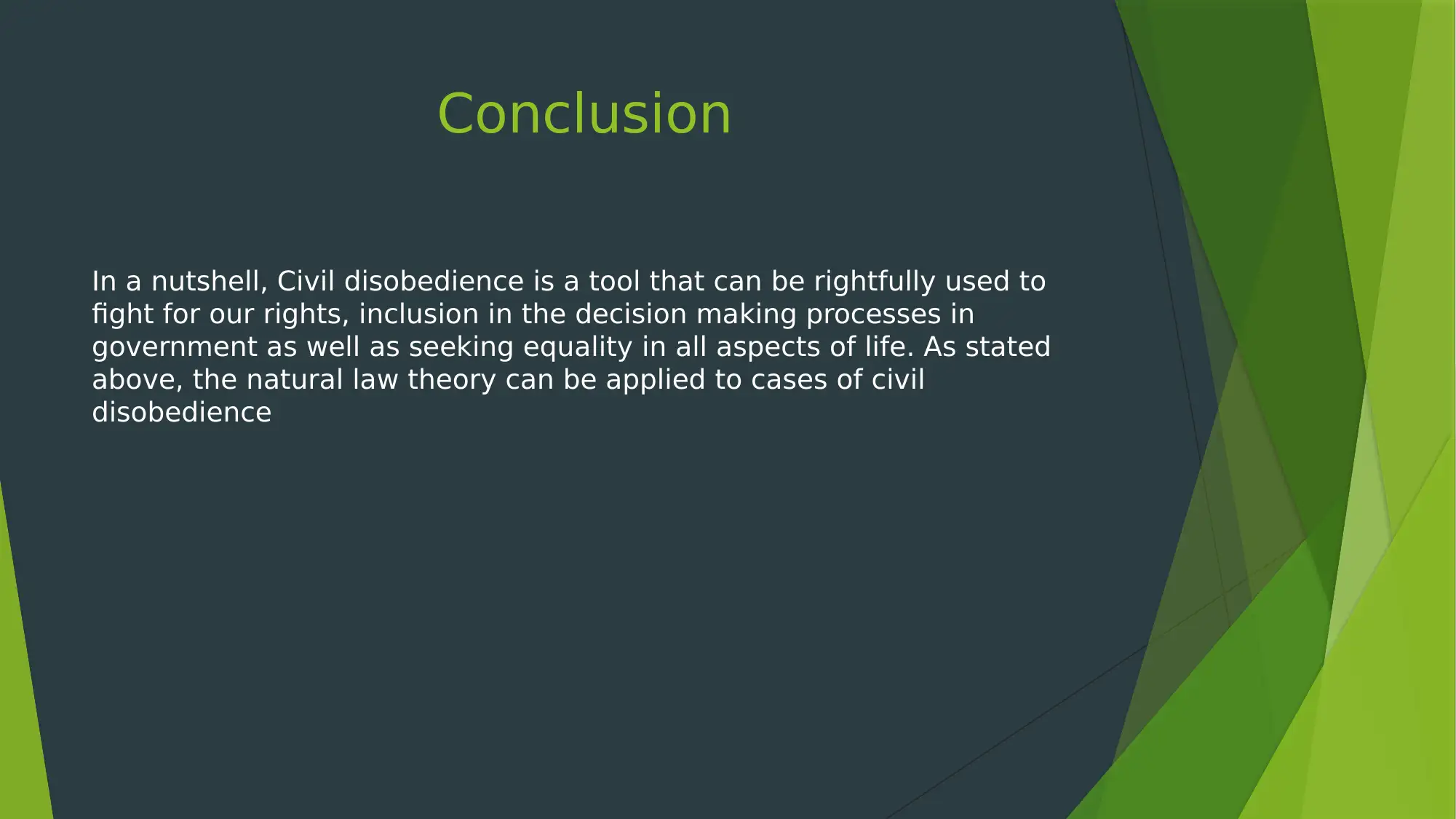
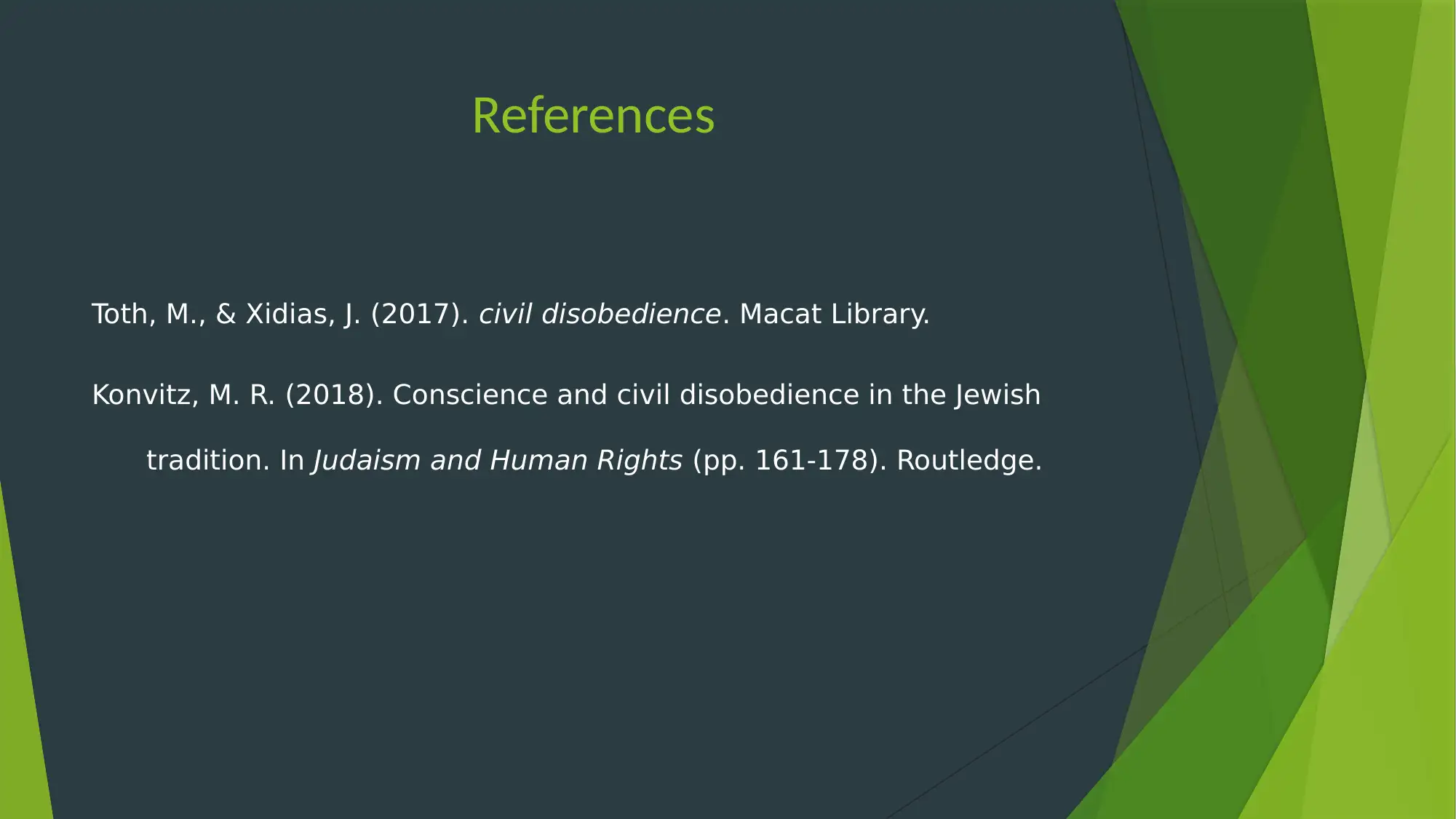





![[object Object]](/_next/static/media/star-bottom.7253800d.svg)